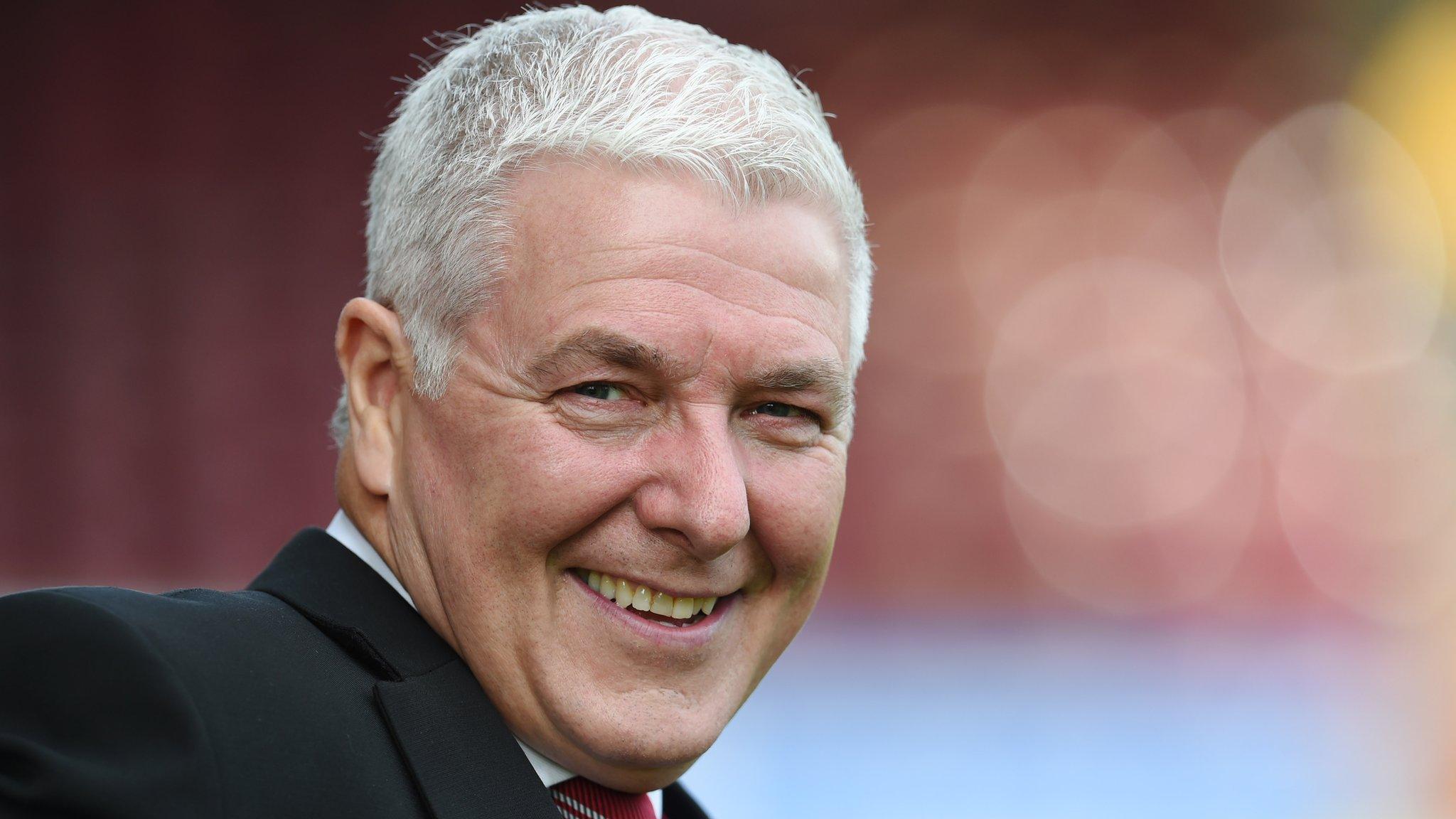Scottish FA's Malky Mackay begins Project Brave journey
- Published
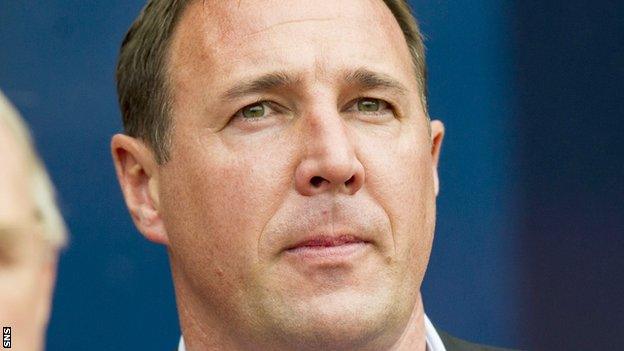
Mackay joined the SFA last year and has started the process of changing Scotland's academy structure
Project Brave is designed to be a radical solution for Scottish football and it brings elements of the past to bear on the future.
As the Scottish Football Association's performance director Malky Mackay has held a series of presentations to member clubs about the proposal, the reaction has been generally positive, even from outfits that had previously been sceptical or resistant.
There would be few grimaces to the notion of restoring a form of reserve team football, though, when almost everybody involved in Scottish football points to the loss of that level of the game being critical to youth academy graduates not being mentally or physically battle-hardened enough for first-team football.
Consensus is the prize for Mackay, since it will enable him to deliver the project in a viable form that the clubs buy into, and the sense is that the momentum is behind him.
"Ninety-five percent of what has been said, people agree with," he said on BBC Radio Scotland's Sportsound.
Coaches key
Mackay has held three presentations this week, with a fourth to follow. He has put detail on to the outlines that were aired when points from a draft copy of Project Brave were published in the media.
The difference between the youth development plan that Mackay has been appointed to oversee and the one that predecessor Mark Wotte established six years ago is that the clubs have been directly involved in producing the blueprint.
Mackay is clear that communication is vital - he has visited 10 clubs since officially starting his role three weeks ago and will make his way around all 42 directly. For Project Brave to succeed, clubs need to buy into it and implement it.
"People have in the main agreed that something radical needs to be done," Mackay said. "And this is radical."
Clubs and SFA 'must come together'
What the clubs are agreeing with is the establishment of a reserve league and an under-18 league, encouraging more development loans, a summer calendar for academy football (with indoor futsal taking place in the winter) and coach development, with a head of coaching to be appointed to lead the development of the best coaches at each club.
"This whole programme is based on coaches," Mackay explained. "Our coach education programme is second to none. What we're not good at is coach mentoring.
"I'm going to ask the clubs to give me their best young coach and I'll put on a course for them, we'll set them tasks, have them for a year thinking deeply about certain problems, make our good young coaches very good young coaches.
"Clubs want that to happen and we need to for our next Scotland managers. Everybody we've spoken to is up for this. We need to make the [coaches] better to make our players better.
"The part that comes up is money, funding."
'Setting the bar high'
Some clubs were initially wary of the prospect of the academy system being streamlined. The plan is to reduce the number of funded elite academies from 29 to a maximum of 16.
Clubs will need to submit a three-year business plan to show that their academy is financially viable, has enough support staff and coaches and good enough facilities. Academies will also be judged on measurable performance outcomes, including the number of graduates in the first team, the number actively out on loan at other clubs and the number representing the national team.
All of this will be assessed by an independent company and the selected elite academies will receive funding but also play each other in a competitive league to maintain the best v best strategy.
Other clubs will still be able to run academies or community outreach schemes. All will continue to receive their current level of funding for three years after Project Brave is implemented, a commitment that has won a lot of support for the plan.
"There is a soft landing for clubs, there is a lot of support and help going to be given," Mackay said.
"We are setting the bar high because it has to be the elite players we're focusing on. It's the 19-21 age group where the whole thing breaks down and we need to get them into first teams.
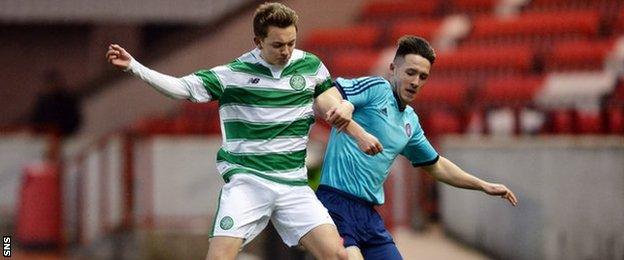
Creating better opportunities for young players is the drive of Project Brave
"It's up to us to educate 11-16-year-olds. We need to be better athletes and have them running properly at that age, proper sports science, diet and nutrition advice, to be under 10% body fat and sports psychology to make sure they are mentally stronger. We need to build better footballers."
Talent identification will be a key factor, particularly when clubs will have to reduce the number of players in their academy. Mackay will establish a talent identification programme at the SFA to assist clubs in predicting which players will make the grade at 19 by measuring and assessing physical and mental markers as they develop.
"It's imperative for Scottish football," he said.
Once Mackay has completed his presentations the next stage of the process is for Project Brave to be presented to the SFA board. Following that, and once the clubs have signed off on it, the plans will begin to be implemented in time for season 2017-18.
"It's about what is the best for the young Scottish elite player," Mackay added.
Mackay has begun the process of making the case for Project Brave, and so far he has been encouraged by the reaction. For now, Scottish football seems prepared to embrace change.
- Published26 January 2017
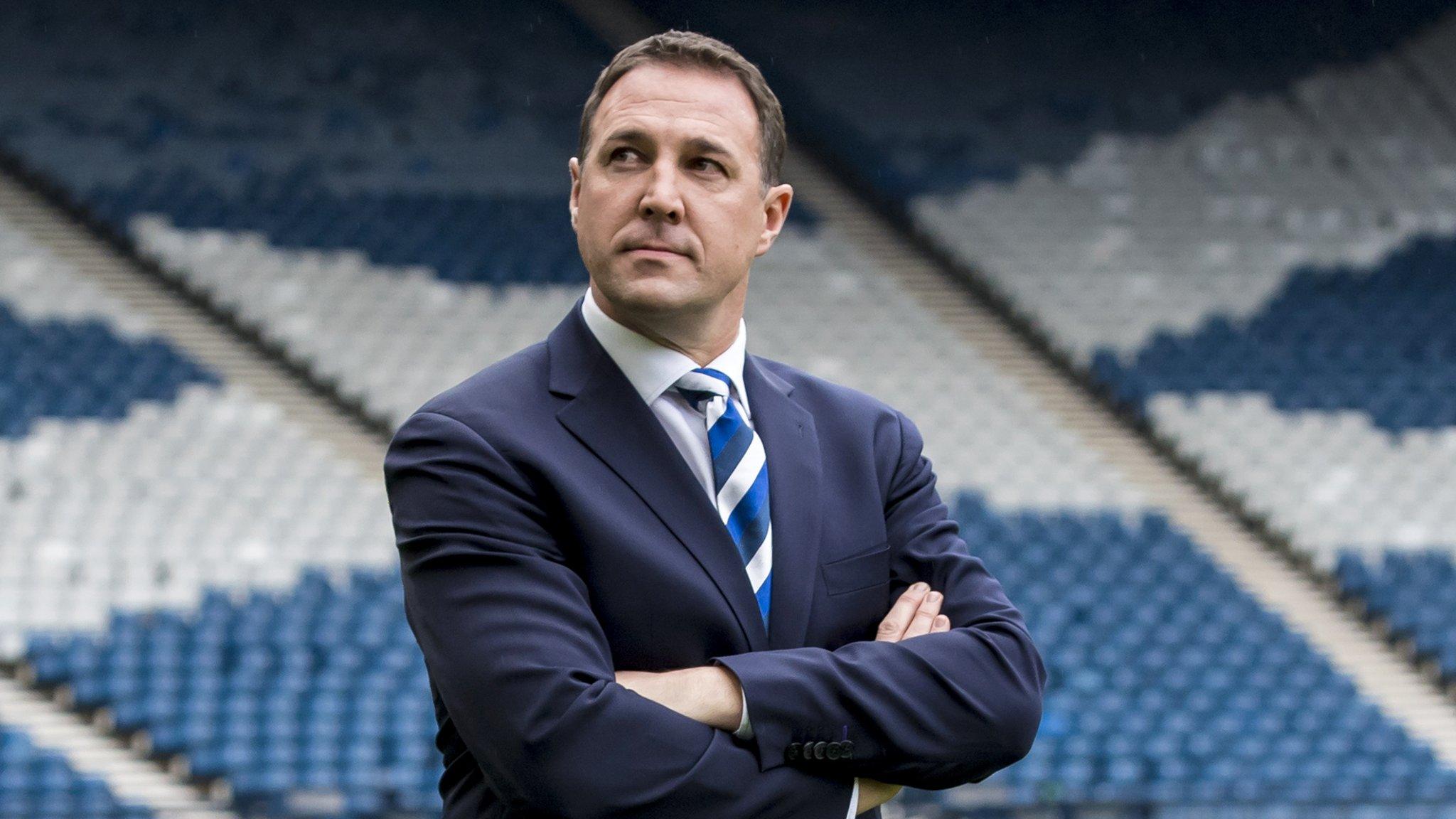
- Published26 January 2017
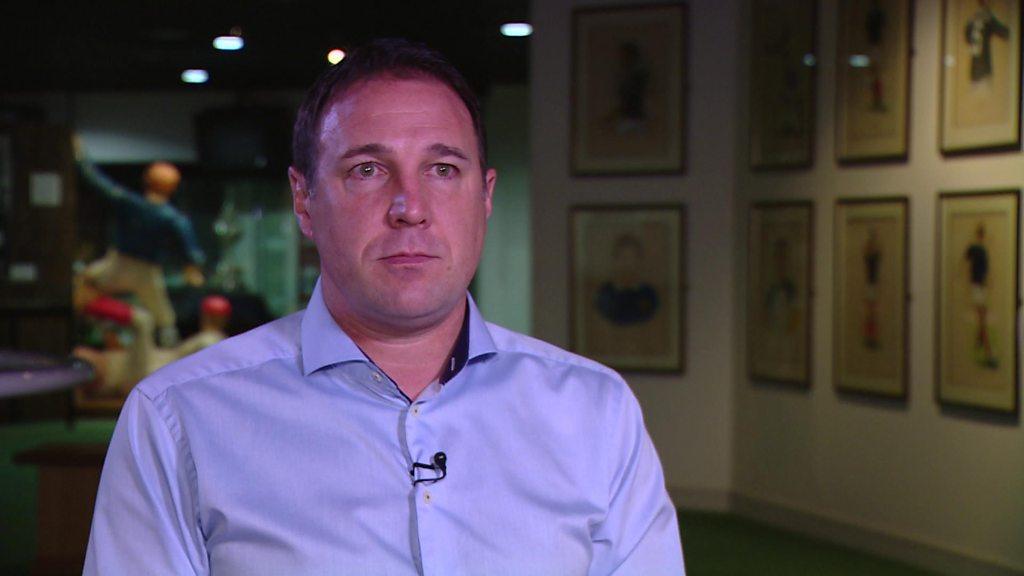
- Published19 January 2017
